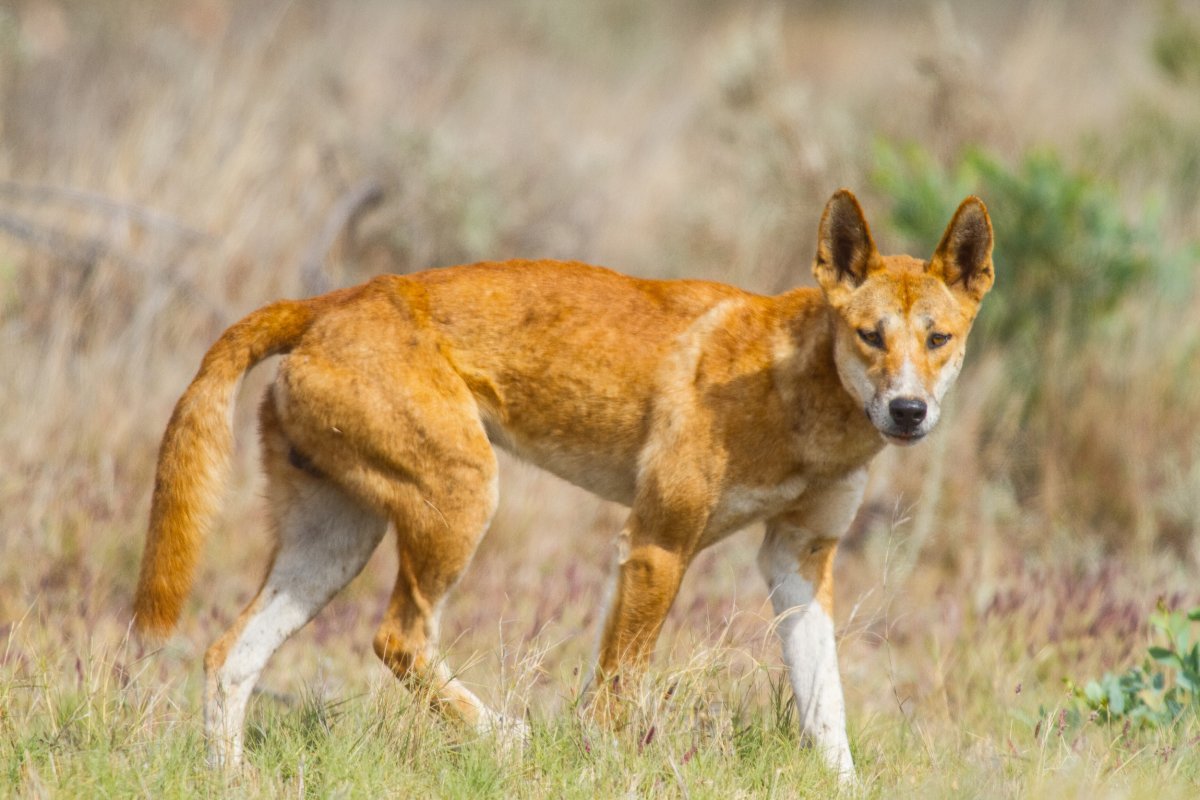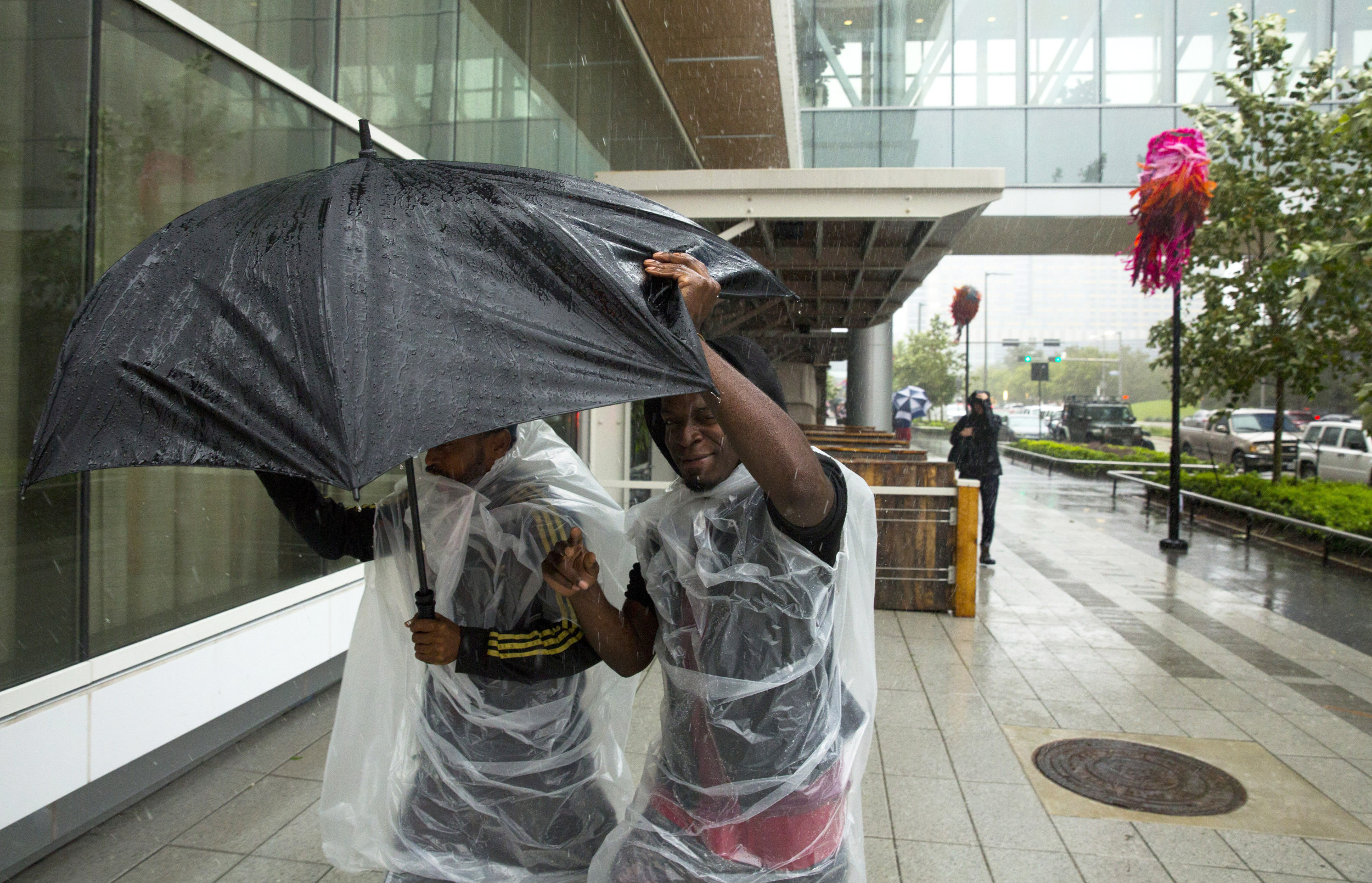A six-year-old girl has been rushed to hospital after she was attacked by a dingo as she was swimming in the shallows.
The girl was swimming in a shallow lagoon on K'gari-Fraser Island in Australia on April 3 when the animal approached her from behind, grabbing her by the head, Queensland Parks and Wildlife Service (QPWS) said in a statement.
"The animal reportedly held her underwater for a few seconds before nearby family members were able to get the dingo off her," LifeFlight, the emergency rescue helicopter provider involved, said in a statement.

The girl was rushed to the hospital by a Bundaberg RACQ LifeFlight Rescue helicopter crew. QPWS said that the animal responsible is thought to be an untagged male.
Dingoes are a subspecies of wild dogs found around Australia, descended from ancient domesticated dogs that arrived on the Australian mainland thousands of years ago, the Australian Museum explains. Wild dingoes weigh around 35 pounds and are roughly 50 inches long and have characteristic sandy-colored fur, somewhat resembling their Carolina dog and Shiba Inu cousins.
Estimates suggest that there could be anywhere between 10,000 and 50,000 dingoes across Australia, but on K'gari-Fraser Island, there are thought to only be around 200 wild dingos, according to the QPWS.
Dingo attacks on humans are uncommon but have happened sporadically around Australia, often on children.

These attacks are believed to have arisen due to dingoes becoming more habituated to the presence of humans and therefore losing their fear, something that has been exacerbated by dingoes eating food out of human garbage or even being directly fed by humans. They may therefore have started to associate human smells with the availability of food, an article in The Conversation by Bill Bateman, an associate professor in ecology at Curtin University, and Trish Fleming, a zoology professor at Murdoch University, suggests.
"That person (feeding the animal) has pretty much signed the death warrant of that animal, influencing the way it eats, what it eats, and even it now wanting to come to humans to get an easy food source," Linda Behrendorff, Fraser Island's dingo ranger, told local 9NEWS's A Current Affair in 2019.
Attacks may also be triggered by a human attempting to run away, inciting a "chase response" in the dingo: on K'gari-Fraser Island, one survey of dingo attacks between 2001 and 2015 published in the Journal of the Australian Mammal Society found that over half of the attacks had involved a chase, sometimes by the humans attempting to retrieve an item stolen by a dingo.
According to the QPWS, the young girl received treatment for three puncture wounds on her head and a small wound on her hand but luckily is in stable condition.
According to the Queensland Department of Environment and Science, there have been 33 incidents of dingo bites since 2018 on K'gari-Fraser Island alone. Multiple children have been attacked by dingoes on the island, including a two-year-old boy and a nine-year-old boy in 2021, and in 2019, a 14-month-old and a nine-year-old boy and his mother.
One notable attack on K'gari-Fraser Island resulted in the death of a nine-year-old named Clinton Gage in 2001, leading to the culling of 31 dingoes. This was the first dingo-related death in Australia since the notorious attack on two-month-old Azaria Chamberlain in 1980 in Uluru, which initially resulted in her mother being convicted of murder and spending three years in prison before being exonerated.
The QPWS advises visitors to K'gari-Fraser Island to never feed dingoes and to keep all food and rubbish secure, as well as to keep young children within arm's reach and camping in fenced areas where possible. They also warn against running, to prevent the chase response that may lead to an attack.
Do you have a tip on a science story that Newsweek should be covering? Do you have a question about dingo attacks? Let us know via science@newsweek.com.
Uncommon Knowledge
Newsweek is committed to challenging conventional wisdom and finding connections in the search for common ground.
Newsweek is committed to challenging conventional wisdom and finding connections in the search for common ground.
About the writer
Jess Thomson is a Newsweek Science Reporter based in London UK. Her focus is reporting on science, technology and healthcare. ... Read more
To read how Newsweek uses AI as a newsroom tool, Click here.








